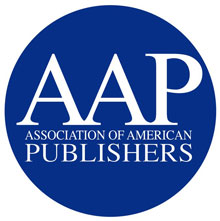June 9, 2020
AAP Files Amicus Brief in Nike, Inc. and Converse, Inc. vs Wu Trademark Case

Today the Association of American Publishers (AAP) filed an amicus brief in Nike, Inc. and Converse, Inc. v. Wu, an important trademark counterfeiting case in which the U.S. District Court for the Southern District of New York misinterpreted the law concerning asset restraints and declined to hold foreign banks in contempt for ignoring court orders.
In its filing, AAP urges the U.S. Court of Appeals for the Second Circuit to reverse the District Court’s legally-flawed decision to ensure that the asset freeze remedy – a critical form of relief for victims of copyright and trademark infringement – remains meaningful and effective.
The Nike appeal occurs against a backdrop of growing concerns globally, and in the publishing industry in particular, over rampant counterfeiting and digital piracy. Counterfeit and pirated books and journals often originate from overseas, with infringers profiting from illegal sales in the United States, at the expense of publishers and authors. Without the help of effective asset restraints, counterfeiters and pirates quickly transfer the profits from their illegal activities to foreign financial institutions and dissipate their assets before rights holders can be compensated for their losses.
In its brief, AAP points out that if the District Court’s decision is left to stand, it will encourage foreign banks to “act with impunity in ignoring U.S. court orders; embolden defendant infringers to continue their illegal business and collect their ill-gotten proceeds with no meaningful accountability; and allow infringement by international actors to continue to flourish, causing incalculable damages to the publishing industry and the U.S. economy as a whole.” AAP agrees with the appellant that the asset freeze orders in Nike clearly bound the Chinese banks, and no exception for “routine banking” or requirement for heightened specificity exists in the context of injunctions that bind banks.
Ultimately, AAP reminds the Second Circuit of the great importance of protecting and enforcing the rights of U.S. publishers and other rights holders in this climate of growing counterfeiting and digital piracy.
AAP is represented on the brief by Oppenheim + Zebrak, LLP of Washington, D.C.
AAP’s brief can be found here.
# # #
